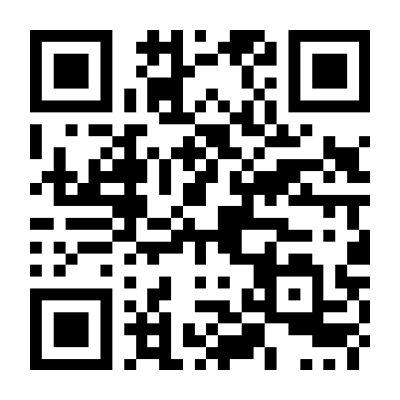单选题
0分
Text 4 Alphabet Inc.'s most successful product - the Google search engine - may now be its most ...
Text 4
Alphabet Inc.'s most successful product - the Google search engine - may now be its most problematic. On Tuesday, the European Commission's top antitrust regulator levied a $ 2. 7-billion fine against Alphabet and Google for the way the search engine handles requests for information about products.
Specifically, Commissioner Margrethe Vestager said that Google twisted its results to bury links to rival companies' comparison shopping sites while prominently featuring its own service, Google Shopping. Google responded that it's simply trying to give users what they want and denied "favoring ourselves, or any particular site or seller. " It has a lot at stake: Google has integrated many different offerings into its search engine, including its mapping and travel services. The principle advanced by Vestager, however, is a good one: Giant online companies shoulcl not be able to take advantage of their dominance in one field to hurt competitors in another.
Google's argument is: It integrated Google Shopping, which offers links to products at sites that advertise on Google. into its search engine because that gave users quicker access to the information they were seeking. And in the United States, the key question in antitrust !aw is whether a company's behavior hurts users, not whether it hurts the company's competitors. European regulators focus more on competitors, but they really are two sides of the same coin. If competitors are unfairly closed out, the public can miss out on the very real benefits that vigorous competition provides.
At the same time, it's undeniable that the public has welcomed virtual monopolies in search, social media and other services in the Internet era. A large part of the appeal of sites like Facebook and Twitter is that so many people use them. There's a network effect for social media apps in particular - the more people who use the service, the more valuable it becomes to them.
Meanwhile, start-ups come out of nowhere to create whole new categories of must-have apps and proclucts online. That means dominant companies have to innovate too, or else they can easily change from today's thing to yesterday's. And often, that innovation involves finding a better way to do something that a competitor is doing.
The challenge for regulators is to provide the big companies space to try new things without grossly disrupting the market, closing out other companies and reducing consumer choice, which will ultimately lead to less innovation. A good place to start is by focusing on cases where there is evidence of intentional undermining of competitors - where a dominant company alters the platform it provides not just to feature its own services, but to make it harder to find or use its rivals'.
39. Which of the following statements about virtual monopolies is true?
Alphabet Inc.'s most successful product - the Google search engine - may now be its most problematic. On Tuesday, the European Commission's top antitrust regulator levied a $ 2. 7-billion fine against Alphabet and Google for the way the search engine handles requests for information about products.
Specifically, Commissioner Margrethe Vestager said that Google twisted its results to bury links to rival companies' comparison shopping sites while prominently featuring its own service, Google Shopping. Google responded that it's simply trying to give users what they want and denied "favoring ourselves, or any particular site or seller. " It has a lot at stake: Google has integrated many different offerings into its search engine, including its mapping and travel services. The principle advanced by Vestager, however, is a good one: Giant online companies shoulcl not be able to take advantage of their dominance in one field to hurt competitors in another.
Google's argument is: It integrated Google Shopping, which offers links to products at sites that advertise on Google. into its search engine because that gave users quicker access to the information they were seeking. And in the United States, the key question in antitrust !aw is whether a company's behavior hurts users, not whether it hurts the company's competitors. European regulators focus more on competitors, but they really are two sides of the same coin. If competitors are unfairly closed out, the public can miss out on the very real benefits that vigorous competition provides.
At the same time, it's undeniable that the public has welcomed virtual monopolies in search, social media and other services in the Internet era. A large part of the appeal of sites like Facebook and Twitter is that so many people use them. There's a network effect for social media apps in particular - the more people who use the service, the more valuable it becomes to them.
Meanwhile, start-ups come out of nowhere to create whole new categories of must-have apps and proclucts online. That means dominant companies have to innovate too, or else they can easily change from today's thing to yesterday's. And often, that innovation involves finding a better way to do something that a competitor is doing.
The challenge for regulators is to provide the big companies space to try new things without grossly disrupting the market, closing out other companies and reducing consumer choice, which will ultimately lead to less innovation. A good place to start is by focusing on cases where there is evidence of intentional undermining of competitors - where a dominant company alters the platform it provides not just to feature its own services, but to make it harder to find or use its rivals'.
39. Which of the following statements about virtual monopolies is true?
参考答案: B
参考解析: [信息锁定]第五段①句指出,不知名的创业公司通常会突然开发出全新的必备软件和产品。②句则指出,这意味着处于主导地位的公司(dominant companies,virtual monopolies)也必须创新,否则很可能会被淘汰。可见,实质性垄断公司同样面临着巨大的创新压力’B.正确。[解题技巧] A.利用第四段①句反向干扰:公众对实质性垄断公司的态度是欢迎(welcome),而非抵制( deny)。C.将第五段③句“实质垄断公司往往需要创新,更好地做竞争对手(主要指创业公司)正在做的事”曲解为“实质垄断公司打算与创业公司合作(cooperate)”。D.曲解第四段末句:将实质性垄断公司“受益于网络效应”改为“受害于网络效应( suffer)”。

 百度扫一扫练题
百度扫一扫练题
 关注千题库公众号
关注千题库公众号








